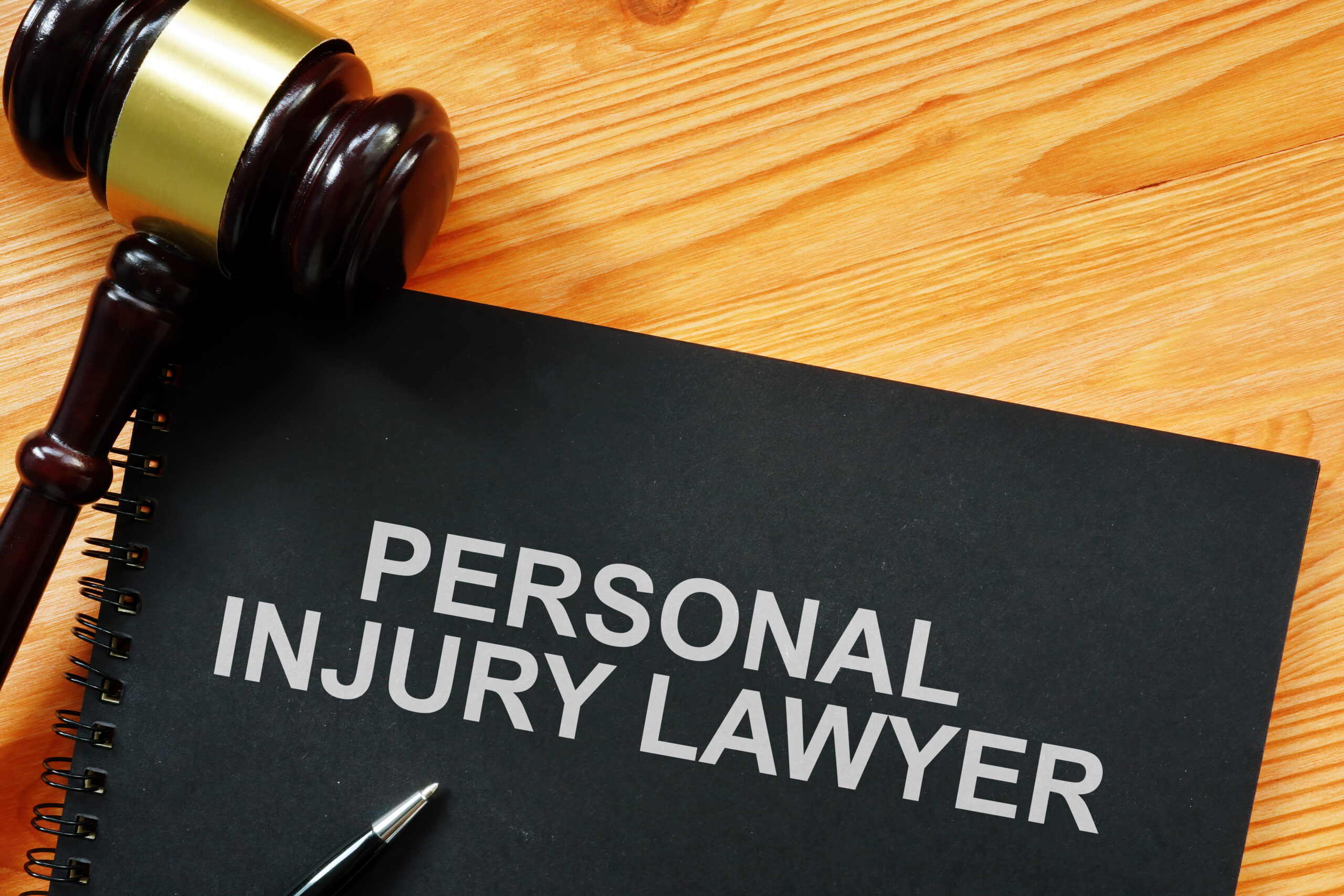Finding the right personal injury lawyer to handle your case can make all the difference in the outcome and compensation you receive. With so many options to consider, it’s important to thoroughly research and evaluate potential attorneys before deciding who to hire. This article provides some guidance on the important things to consider when choosing a personal injury lawyer in 2024.
Personal Injury Lawyer
Suffering an injury or accident caused by another party’s negligence can turn your life upside down. Between mounting medical bills, lost income from missed work, pain and suffering, and more, pursuing fair compensation is often essential. Handling a personal injury claim on your own is extremely difficult. An experienced personal injury lawyer levels the playing field against big insurance companies and significantly improves your chances of maximum compensation.
Some of the most common types of personal injury cases include the following:
- Motor vehicle accidents: car, motorcycle, truck, and pedestrian accidents
- Premises liability: slips and falls, dog bites, poor property maintenance
- Medical malpractice: surgical errors, misdiagnosis, and birth injuries
- Product liability: injuries from defective products
- Workers’ compensation for on-the-job injuries
Regardless of your specific accident and injuries, having the right legal representation makes a huge difference. Continue reading to learn what to look for when evaluating and choosing a personal injury lawyer for your 2024 claim.

Factors to Consider When Hiring a Personal Injury Lawyer
Choosing the right lawyer to handle your personal injury case is a big decision. Here are the most important factors to evaluate as you research potential attorneys and law firms:
Specialization and Experience
One of the top considerations is finding a lawyer who specializes specifically in personal injury law. General practice lawyers simply won’t have the right focus and knowledge to maximize your injury claim.
Look for a lawyer or law firm with extensive experience handling your specific type of case. For example, if you were in a car accident, find an attorney with a long track record with motor vehicle accident cases. Check your experience with premises liability cases if you were injured on someone else’s property. Specialized experience leads to better case strategies and higher settlements.
Track Record and Case Results
The best indicator of an attorney’s ability to deliver results is to look at their past case results. Research online or ask the lawyer directly for examples of verdicts and settlements they have secured for past clients. High settlement amounts achieved for similar cases to yours are a very positive sign.
Lawyers who take cases to trial and win will be viewed as a larger threat to insurance companies, giving you more leverage in settlement negotiations. Look for a proven track record of success.
Location and Service Area
It’s essential to find a personal injury lawyer who is licensed in your state and has experience with the local courts, judges, and processes where your case will be handled. Laws and case timelines vary between states.
Also consider the lawyer’s or law firm’s service areas relative to where you live and need representation. For example, a lawyer located in and focused on downtown Chicago may not be the best fit if you live in a faraway suburb and were injured locally. Look for a location and service area that match your needs.
Lawyer or Law Firm Reputation
The reputation of the lawyer and law firm should be carefully considered. Look online for reviews, testimonials, and client feedback. Lawyer rating sites like Avvo can provide peer ratings and credential information to help identify respected attorneys.
Professional affiliations, awards, accolades, and certifications like Board Certified Specialist can indicate a lawyer’s level of qualification and esteem. Just make sure the honors touted by the law firm are from legitimate legal organizations, not simply vanity awards.
Fees and billing structure
Never choose an attorney based on cost alone, but the fee structure is an important consideration. Most personal injury lawyers work on a contingency fee basis, taking a percentage of your final settlement amount as payment only if your case is successful. Typical contingency fees range from 30% to 40% of the settlement. Understand the contingency percentage and any other expenses you may owe.
Some personal injury lawyers bill hourly rather than using a contingency fee. Hourly rates can range significantly from $100 to $500+ per hour, depending on experience, demand, and local markets. Hourly billing gives you more control but comes with more risk if your case is unsuccessful.
Ask upfront about retainers, case expenses, and fee expectations so there are no surprises down the road. Make sure your lawyer’s billing aligns with your budget and recovery expectations.
Lawyer or Law Firm Resources
The size of the law firm and access to resources should also be considered when choosing a personal injury lawyer.
Generally, larger law firms will have more leverage, deeper pockets, and broader teams to take on complex cases. However, a seasoned solo practitioner may offer more personalized attention. Mid-size firms can provide a good middle ground.
Look at the lawyer’s support staff—experienced paralegals, legal assistants, investigators, and other professionals can make a big difference. Also, research the depth of the overall legal team at a firm to assess their capabilities.
The right resources translate to stronger investigation, more bargaining power, and a greater chance of success. Make sure your lawyer or law firm has the capability to handle your case thoroughly.

Working with Your Personal Injury Lawyer
Once you’ve carefully chosen the right lawyer for your personal injury case, here’s what to expect as you begin working together:
The initial consultation will involve reviewing your case details, evidence, and timeline of events. Your lawyer will gather documentation, records, and details to back up your claim and determine liability. Photographing injuries, accident sites, or property damage provides visual evidence.
Your lawyer will launch an investigation using their resources to establish negligence by the other parties involved and determine all liable at-fault parties. This may involve interviewing witnesses, consulting expert opinions, and more.
Settlement negotiations will begin once adequate evidence is gathered. Your lawyer will initiate a claim and demand letter requesting compensation from insurers. The legal team will handle all interactions and negotiations with your approval before finalizing any settlement.
If a fair settlement can’t be reached through negotiation, then your lawyer will prepare to take your case to trial. This involves extensive preparation and legal procedures like discovery, depositions, motions, and more. Most personal injury cases settle out of court, but your attorney must be ready to go to trial.
The timeframe for resolving your case and receiving a settlement depends on factors like negotiations, state laws, and backlogged local courts. Many claims settle within a few months, while complex cases can take a year or more. Your lawyer will give you case-time estimates and keep you updated on progress.
Maximizing Your Settlement
The level of compensation you receive from your personal injury settlement is driven by the documented damages incurred. Your lawyer’s ability to thoroughly prove and quantify your damages directly impacts your settlement value.
There are two main categories of damages: economic and non-economic. Economic damages represent tangible, quantifiable losses like:
- Medical expenses: both current and estimated future medical costs related to treating your injuries This also accounts for the need for ongoing treatments or therapies.
- Lost income: the amount of income lost to date as well as potential future income losses from missed work due to your injuries.
- Property losses: repair or replacement costs for property damaged in the incident.
Your lawyer will gather evidence like medical bills, pay stubs, and repair estimates to fully calculate economic damages.
Non-economic damages cover intangible losses like pain and suffering, emotional distress, loss of enjoyment of life, permanent disabilities or disfigurement, and other impacts on quality of life. These damages are harder to quantify, but a skilled personal injury lawyer knows how to effectively demonstrate their scope and value.
Maximizing both categories of damages is key to obtaining the full compensation you deserve. An experienced attorney will have the resources and knowledge to build the strongest case possible regarding your rightful economic and non-economic damages.
Mistakes to Avoid When Choosing a Lawyer
With so much at stake in your personal injury claim, it’s important to avoid common mistakes when researching and choosing an attorney.
Avoid making selections based solely on legal advertising or marketing claims. High-priced ads don’t necessarily equal high-calibre legal services. Focus on actual credentials, case results, and client reviews instead.
Be wary of choosing a lawyer based on the lowest fees or costs alone. Higher fees often reflect greater experience, which pays off with larger settlements. Opt for proven expertise over the cheapest option.
Don’t assume a family friend or real estate lawyer is equipped to handle your personal injury case. Specialized experience is a must. Make sure they regularly handle your specific type of injury case.
Failing to research a lawyer’s background, track record of results, and overall reputation is a mistake. Take time to thoroughly vet qualifications, wins, and client experiences. Don’t risk your case on an unknown
Being strategic in your lawyer selection process takes time and diligence upfront, but it avoids regrets down the road. Avoid these common missteps, and you’ll be on your way to finding the right attorney.
Conclusion
Choosing the right personal injury lawyer for your 2024 claim requires carefully evaluating experience, reputation, resources, and the ability to prove maximum damages. Take time to research potential attorneys’ credentials, track records, and review client reviews. Meet with lawyers before deciding on a consultation.




